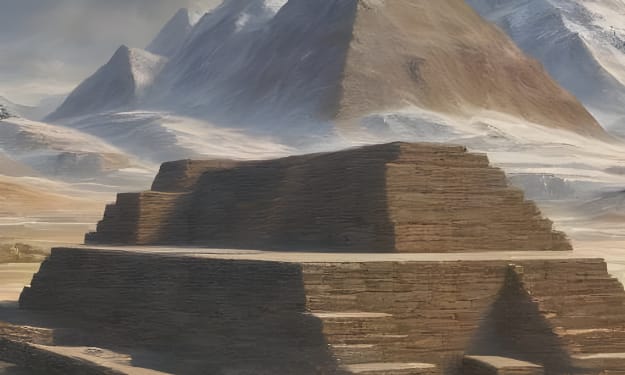5 countries never colonised by other countries
The Land of the Thunder Dragon

The age of colonialism, a period marked by European domination over vast swathes of the globe, left few corners of the world untouched. However, a handful of nations managed to resist the tide of European conquest, fiercely protecting their independence. Here, we explore five such countries, each with a unique story of resilience and self-determination:
1. Bhutan: The Land of the Thunder Dragon
Nestled high in the Himalayas, Bhutan, with a population of around 800,000, has a rich history of maintaining its independence. Its mountainous terrain posed a natural barrier to large-scale invasions, while its strategic location between warring empires like Tibet and China allowed it to play its neighbors against each other. Bhutan's isolation also fostered a unique culture deeply rooted in Buddhism, where peace and harmony are paramount values. While the British attempted to establish a protectorate in the 19th century, Bhutan successfully negotiated a treaty that preserved its autonomy.
Challenges and Opportunities: Bhutan's mountainous terrain, while aiding its defense, also limits its economic development. However, the country has prioritized sustainable development, focusing on eco-tourism and preserving its rich cultural heritage. Bhutan's "Gross National Happiness" index, which measures well-being beyond just economic indicators, has garnered international attention.
2. Ethiopia: The Land of Origins
Ethiopia, with a population exceeding 110 million, boasts a long and proud history as one of the few African nations to avoid complete colonization. The rugged terrain of the Ethiopian Highlands, coupled with a strong military tradition, helped the Ethiopians resist European incursions. Italy's brief occupation (1936-1941) was met with fierce resistance, and Ethiopia regained its independence soon after. Ethiopia's rich cultural heritage, with the Aksumite Empire a testament to its ancient civilization, instilled a sense of national identity that served as a powerful force against external domination.
Challenges and Opportunities: Ethiopia faces challenges like poverty and political instability. However, the country is undergoing rapid economic development and is actively participating in regional peace initiatives. Ethiopia is also a source of ancient artifacts and historical sites, positioning it as a potential tourism powerhouse.
3. Iran (Persia): A Land of Ancient Empires
Iran, with a population of around 85 million, has a long and storied history as a powerful empire. Throughout the colonial era, European powers attempted to gain influence in Iran, but the country's strong military and centralized government effectively resisted complete subjugation. Iran's strategic location, at the crossroads of Asia and the Middle East, also made it a complex geopolitical chessboard where European powers often competed for influence rather than outright conquest.
Challenges and Opportunities: Iran faces challenges like international sanctions and political tension. However, the country has a rich cultural heritage and vast natural resources, particularly oil and gas. Iran's scientific advancements and technological capabilities position it as a potential leader in the region's development.
4. Japan: The Land of the Rising Sun
Japan, an island nation with a population of over 125 million, pursued a unique path during the colonial era. While it wasn't directly colonized, Japan itself became a colonizer, expanding its empire in Asia during the early 20th century. Japan's rapid modernization and adoption of Western military technology allowed it to resist European attempts at domination. However, Japan's defeat in World War II led to a period of American occupation, though the country quickly regained its independence and emerged as a global economic power.
Challenges and Opportunities: Japan faces challenges like an aging population and natural disasters. However, the country is a leader in innovation and technology, with a strong focus on research and development. Japan's cultural influence through anime, manga, and video games extends worldwide, creating a strong brand recognition and potential for further economic growth.
5. Liberia: A Land of Freedom
Liberia, with a population of around 5 million, presents a unique case. Founded in the early 19th century by the American Colonization Society as a haven for freed African Americans, Liberia declared its independence in 1847. While European powers maintained spheres of influence in the region, Liberia managed to preserve its nominal independence through skillful diplomacy and playing off competing European interests. However, the country's internal politics have been fraught with instability, posing a different kind of challenge to its long-term development.
Challenges and Opportunities: Liberia faces challenges like poverty and corruption. However, the country is rich in natural resources, including iron ore and timber. With international aid and improved governance, Liberia has the potential to overcome its internal struggles and build a brighter future.
Conclusion:
These five countries, despite their diverse geographical locations
About the Creator
Moharif Yulianto
a freelance writer and thesis preparation in his country, youtube content creator, facebook






Comments
There are no comments for this story
Be the first to respond and start the conversation.